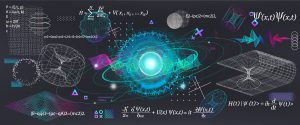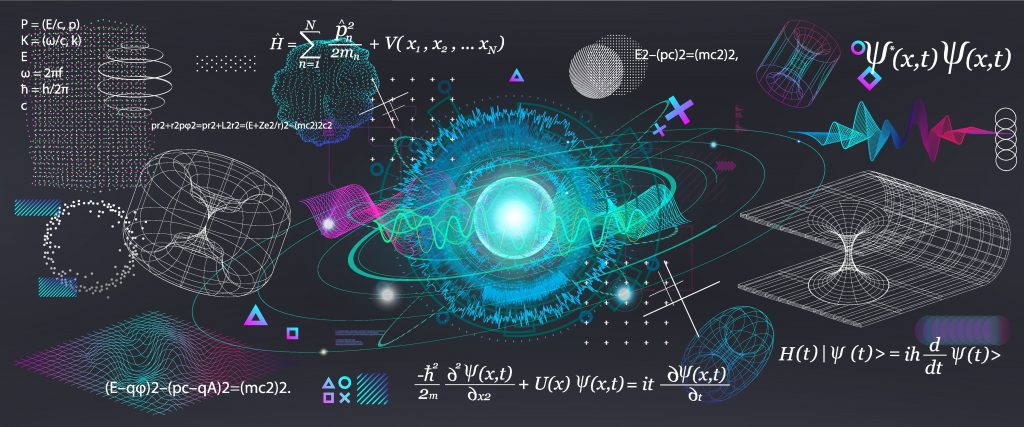Physics Practice Questions. Think of all the homework and class assignments you have been set. How many of them involve working through exam questions? Some? Most? All?
Chances are, if you’re studying Physics A-level or GCSE you’ve been set work that includes previous exam questions or specific targeted practice of the concept you learnt that day.
So why are practice questions essential in Physics?
It’s simple. Physics practice questions reinforce your knowledge by testing your recall and embed understanding by allowing you to apply your skills and knowledge. It’s sometimes called ‘shed loads of practice’ or SLoP and there are lots of excellent resources out there to help you prepare for your exams with practice questions.
Types of questions
We can divide the Physics content up into different styles of question. Firstly you have the single-answer question, multiple choice, or match up the answer. These you simply need to recall information to answer correctly. Completing multiple practice recall tasks will drill these into you and hopefully mean these are easy marks to obtain. By practicing this recall, you become faster and more efficient, and are more likely to get the marks!
Then we have written questions which include tasks such as asking you to recall knowledge or explain a phenomenon, or perhaps design an experiment. And finally, we have mathematical or formula-based questions which ask you to recall or use physical formulae to arrive at a numerical answer.

HOW TO REVISE: 5 STUDY TIPS THAT REALLY WORK
Why Practice Short and Longer Answer Questions?
Physics questions may employ simple recall of one word or phrase, or longer explanations. There are also 6 mark explanations for some exam boards or tasks which require you to write a plan for an experiment.
Learning the material can be done in lots of ways, including retrieval practice, use of knowledge organisers, and flashcards as examples. However, it is vital to practice these style questions so you are familiar with how the exam board wants you to phrase the answer. Therefore, finding previous exam questions from your exam board is the best way to ensure you are primed to gain maximum marks.
Different Exam Boards
Each board has a unique style. Some will expect experiment design to be written in a particular way, for example including ways to minimise errors. Other exam boards will expect a greater emphasis on how to interpret the data. Some will expect more flowing prose whereas some are happier with bullet point answers. It’s important to use the short and long answer questions from previous papers to ensure you are confident with the style required.
These are similar style questions from the AQA GCSE specification and the Edexcel IGCSE specification:
| Question | Answer | |
| AQA June 2018 Paper 1 | A student wanted to determine the density of a small piece of rock.
Describe how the student could measure the volume of the piece of rock.
[4 marks] |
Level 2: The method would lead to the production of a valid outcome. Key steps are identified and logically sequenced.
Level 1: The method would not necessarily lead to a valid outcome. Some relevant steps are identified, but links are not made clear. No Relevant Content. Indicative Content:
|
| Edexcel June 2019 Paper 1 | A student investigates how current varies with voltage for a metal filament lamp.
Describe a method the student could use for their investigation.
[4 marks] |
 |
Familiarise yourself with mark schemes
As you can see, the style of marking is quite different. The AQA question requires a valid method in a logical sequence. The IGCSE separates each marking point independently. Knowing the style of answer you are expected to give is extremely important to being able to give an answer that will obtain maximum marks!
Through completing lots of past paper questions you will also become familiar with these mark schemes, and know what sort of answer they are looking for. Consequently, you will be more prepared for your exams.

RAISE THEIR GRADE: 5 STUDY HABITS THAT WILL RAISE YOUR CHILD’S GRADE
Why Practice Mathematical Questions?
The other sort of common question in Physics is the mathematical style question. With these mathematical questions it’s easy to see why we need to utilise practice tasks. They enable you to become familiar with rearranging equations, substituting numbers correctly and understanding significant figures and rounding, therefore, the more practice questions you complete, the more confident you will be with tackling these questions in the exams.
Familiarity with the maths skills is essential to both pace and accuracy in exams, and repeating similar questions can drill the expectations into you. This hopefully makes the exams a little less daunting! Many physics concepts are underpinned by mathematics. Subsequently, being confident with the formulae can help you to understand what’s going on with the physics.
Some Examples
For example, consider the idea of Hooke’s Law. This is a simple equation
force = spring constant x extension
Being able to rearrange this and use it to find any missing component is important. For example we can rearrange this equation to find the extension of a spring with known spring constant under a given force (up to the limit of proportionality).
extension = force/(spring constant)
Let us take another example, the more complicated equation of gravitational force
F=G (m_1 m_2)/r^2
Here the rearrangement is not so simple, for example to find r:
r=√(F/(Gm_1 m_2 ))
Completing plenty of practice questions, which ask you to find different missing values, subsequently allows you to become an expert in rearranging each type of equation.
Calculator Comfort
Secondly, practicing our mathematical equations allows you to be comfortable with how your calculator works, therefore, I would highly recommend a Casio scientific calculator, as this will do everything you need. I’ve used the same calculator throughout school, university and now in my teaching career!
Whichever choice you make, it is really important to be familiar with the nuances of how the calculator works. Key things to discover and practice are:
- Using standard form
- How to convert fractions to decimals (in physics you should always give your answer as a decimal to an appropriate number of significant figures)
- Using trigonometric functions
- Changing from degrees to radians (A level)
- How to input
- How to square and cube numbers, and how to find square and cube roots.
- What order to input things in order to generate the correct value
All of these things are important, and practice will enable you to successfully navigate these using your own calculator.
Summary
In conclusion, I hope I have opened your eyes to some of the ways in which using practice questions can help you prepare for your exams. As well as embedding knowledge they can also help you understand the exam board expectations and even help you with using your calculator!
A bit about the author, Joanna P:
 As a fully qualified teacher of Physics with 10 years teaching and tutoring experience including as Head of Department in a very successful Independent Girls’ School, Joanna’s undergraduate degree was in Natural Sciences from Gonville and Caius College, University of Cambridge, and her MSc in Education was from Loughborough University.
As a fully qualified teacher of Physics with 10 years teaching and tutoring experience including as Head of Department in a very successful Independent Girls’ School, Joanna’s undergraduate degree was in Natural Sciences from Gonville and Caius College, University of Cambridge, and her MSc in Education was from Loughborough University.
An experienced 1-2-1 tutor and examiner for Edexcel, Joanna has as excellent track record of results in my students including improved grades up to three times above their university predictions from school. She is also a Fellow of the Chartered College of Teaching and a Chartered Science Teacher, sitting on the Education Group for the Association for Science Education and serving as Regional Secretary for the East Midlands, showing her commitment to exceptional physics and science teaching practice.


